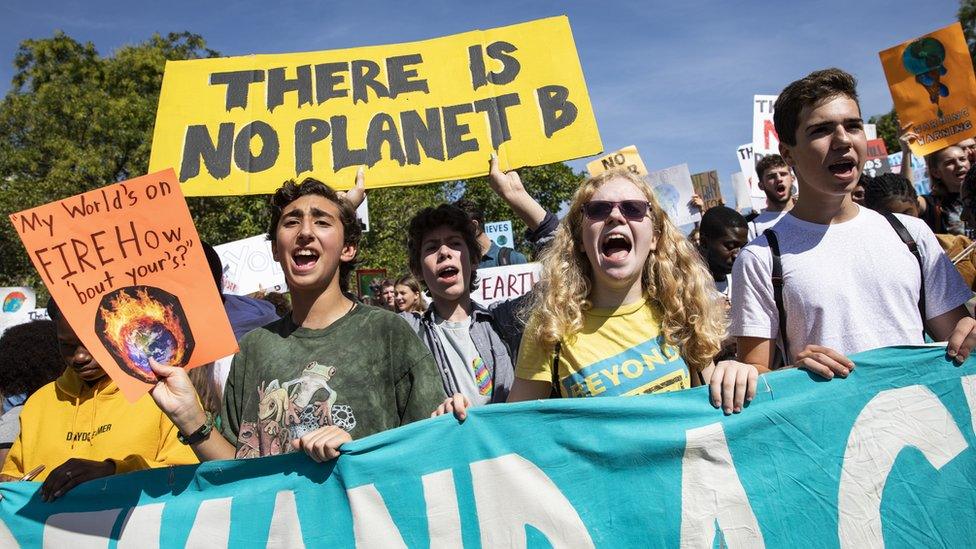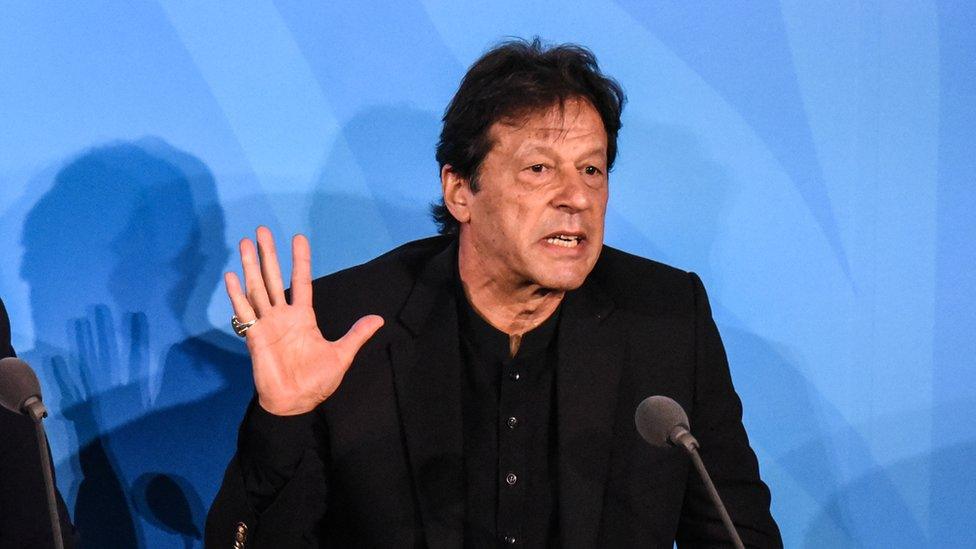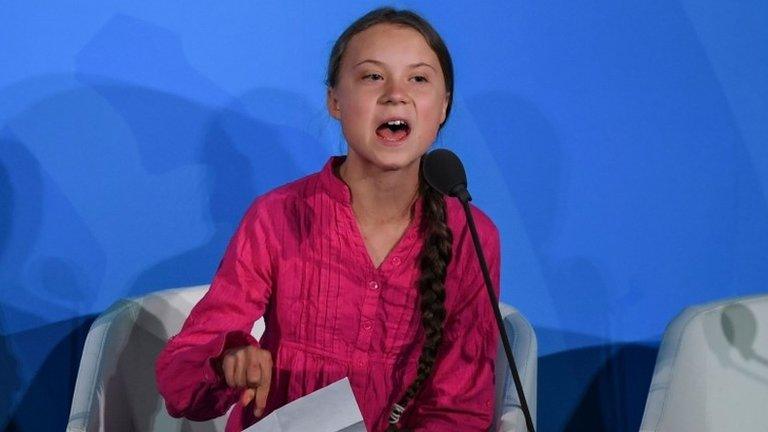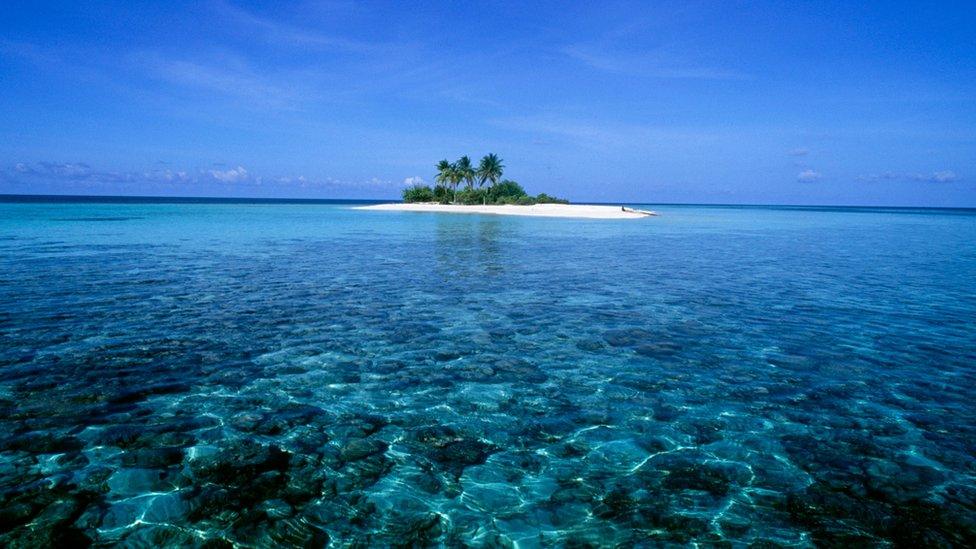Greta Thunberg: What climate summit achieved after outburst
- Published

The UN’s climate summit has closed amidst cautious praise for its achievements, and bitter condemnation for its failures.
On the plus side, more than 60 nations announced they were working on or exploring plans to reduce greenhouse gas to virtually zero.
And a similar number said they would definitely boost their climate change ambitions by next year.
On the minus side, the campaigner Greta Thunberg blasted leaders for what she called inadequate ambition that risked the future of the young.
Germany’s pledge, for instance, was described by critics as totally unfit to meet carbon-cutting targets it’s already promised.
And scientists will warn on Tuesday of alarming changes in the natural world, including melting ice and sea level rise beyond previous projections.
So it’s possible to describe the UN summit as a cup half full, or a cup three-quarters empty.
"You are failing us" - Greta tells world leaders
That said, there were very clear signs that around the world people are waking up to the threat of an over-heating climate.
India, China and the EU say they will deliver tougher carbon-curbing plans in 2020.
Major ports, banks and shipping lines are committing to "a moon shot" of net zero carbon shipping by 2030, external.
Finland aims to become the first industrialised nation to absorb more carbon than it emits.
Pakistan, which has planted a billion trees in the last five years, pledged to add 10 billion in the next five.

Prime Minister of Pakistan Imran Khan has pledged to plant 10 billion trees in the next five years
And Greece said it would ban single-use plastics by 2021 and phase out its use of the dirtiest coal by 2028.
Critics applauded the efforts but said commitments from major nations were nowhere near what was needed to stabilise the climate.
The USA, for instance, was represented by Donald Trump.
He wandered in mid-session, briefly took a seat in the audience, checked his watch and sauntered out to attend a rival meeting on religious freedom nearby – all under the furious gaze of Ms Thunberg.
The moment Greta Thunberg saw President Donald Trump
She and her colleagues announced they would take law suits against five nations on the grounds that, by jeopardising the climate, they were breaching the rights of children.

How did world leaders react to Greta?
US President Donald Trump appeared to mock the 16-year-old, tweeting a video of her address, where she warned about impact of climate change, with the comment: "She seems like a very happy young girl looking forward to a bright and wonderful future. So nice to see!"
French President Emmanuel Macron had measured criticism for Ms Thunberg's "very radical" approach, suggesting that anger at his government was misplaced.
France, along with Germany, were among the five countries included in the complaint filed to the UN on Monday by Ms Thunberg.
"Everything that our young people are doing to fight this is useful - and the not so young too," he told Europe 1.
"But now they have to focus on those who have most to do, those trying to get in the way of change. I don't feel the French or German government are the ones getting in the way today."
German Chancellor Angela Merkel posted a photo of her speaking with the young activist.
Allow Instagram content?
This article contains content provided by Instagram. We ask for your permission before anything is loaded, as they may be using cookies and other technologies. You may want to read Meta’s Instagram cookie policy, external and privacy policy, external before accepting. To view this content choose ‘accept and continue’.

However, Ms Merkel received criticism from some complaining that Germany is not phasing out coal fast enough.

Harjeet Singh, from the charity ActionAid, said: "This summit was supposed to be a turning point. But we have seen an exceptional lack of commitment from the biggest and richest polluting countries that continue to take trivial measures toward solving a life-or-death crisis."
Kate Hampton, from the Children's Investment Fund Foundation, asked: "If we can’t massively accelerate the many solutions available to us now... then what are we doing, really?"
Jennifer Morgan, the head of Greenpeace International, said that "for the most part, world leaders did not deliver what was needed in New York today."
Attention will now shift to Monaco where the Intergovernmental Panel on Climate Change will warn that global heating is causing an ocean emergency.
Follow Roger on Twitter @rharrabin
- Published23 September 2019

- Published22 September 2019

- Published24 September 2019
